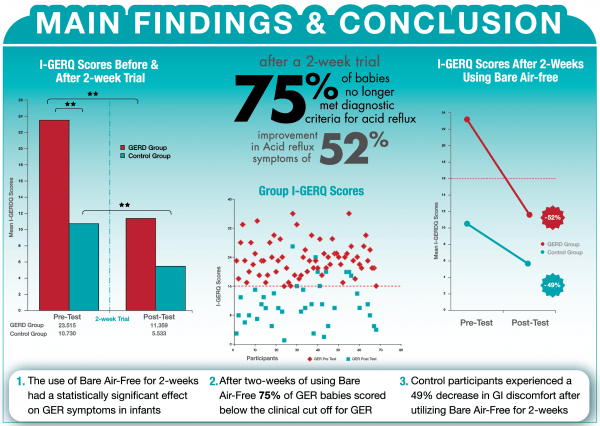
Acid reflux in babies is common, but not all babies spit up
Gastroesophageal Reflux (GER) is what happens when the stomach acid flows back into the esophagus and out of the mouth. This is commonly known as spit up or vomiting. This condition is rarely serious. However, if it persists long enough, irritation or damage to the esophagus is possible. Babies have immature digestive systems. As a result, they are particularly susceptible to GER. According to the National Institutes of Health (NIH), about half of all infants spit up multiple times a day for the first 3 months of their lives. Furthermore, as many as 66% of babies have symptoms of GER at age 4 months. GER is fairly easy to recognize. Vomiting, spitting up, lots of dirty laundry, an irritable baby, and an exhausted parent. But, what happens when a baby is fussy or irritable, but does not vomit? Silent acid reflux in babies is not as easily recognized.
What is Silent Acid Reflux
Recognizing silent acid reflux can be difficult for new parents when there are no obvious signs. With silent reflux in babies, stomach contents enter the esophagus, but before vomiting, the baby swallows. Because there are no overt signs (spitting up or vomiting), reflux may go undiagnosed.
Symptoms of Silent Reflux
The symptoms of silent acid reflux in babies are exactly the same as GER except there is no vomiting. As with GER, the baby may be irritable or fussy around meal times. The baby may cough, act as if in pain by arching the back, have difficulty sleeping, have frequent wet burps, or difficulty gaining weight.
What can I do if my baby has Silent Reflux?
- Talk to your pediatrician. If you are formula feeding, your baby may have problems digesting some of the proteins in the formula. If you are breastfeeding, the pediatrician may recommend consulting with a licensed lactation specialist to ensure there are no issues with how the baby latches.
- Use an air-free feeding system. Bare® Air-free significantly reduced reflux symptoms in 75% of babies; and gas, colic and fuss in 99.9% of babies; in the first 2 weeks.
- Keep your baby upright for 30-45 minutes after feeding.
- Feed smaller volumes, more often, and burp frequently.
- Feed your baby while they are 100% upright.
- Avoid overfeeding your baby.

Many babies will have reflux during the first several months of life. Your baby may seem uncomfortable or in pain during mealtimes, but there is no spitting up or vomiting. If you are worried, talk to your pediatrician about your concerns. Try feeding in an upright position and with an air-free system. See how feeding Bare® Air-free helped this mom and baby.
